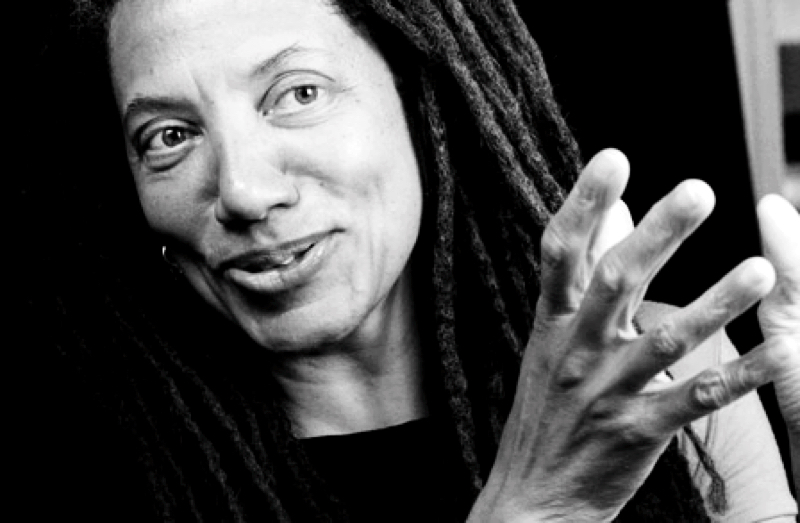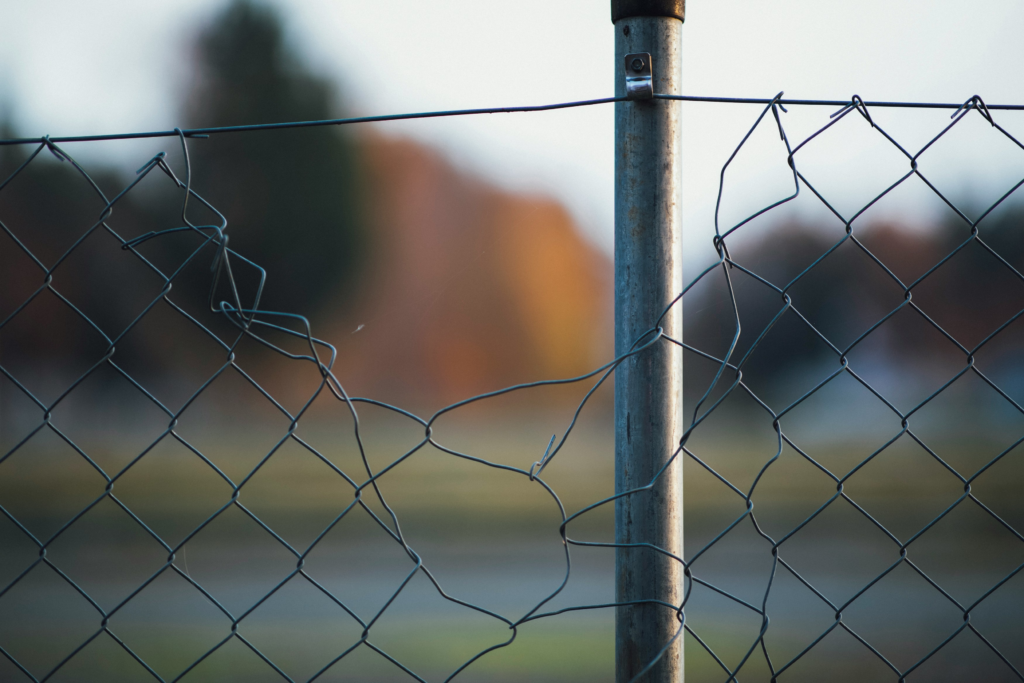“The Mantle of Daughter”: A Discussion of Ancestry with Nikky Finney

In this interview conducted by Emily Ellison, poet Nikky Finney discusses the permeating importance of daughterhood in her poetic, personal, and interpersonal practices—a daughterhood extending beyond its literal application to include other kinships. Through this lens, Finney addresses how we might better serve those around us by opening up conversations to include stories and voices yet unheard. Because “the passing on of stories empowers us,” the small permissions we can grant each other—permissions to speak of our diverging and converging experiences—are our greatest sources of strength.
Nikky Finney is the author of four poetry collections: On Wings Made of Gauze, Rice, The World is Round, and the National Book Award-winning Head Off & Split. A passionate social activist, her influence as a former faculty member of Cave Canem and a founding member of the Affrilachian Poets reaches wide. Finney currently holds a professorship at the University of South Carolina.
Ellison: I’d like to begin this interview by inviting Toni Morrison and her perspective on the daughter to be the foundation of our conversation: “A woman has to be a daughter before she can be any sort of a woman. If she doesn’t have that in mind, if she doesn’t know how to relate to her ancestors, to her tribe, she is not good for much.”
You relayed this quote during one of your readings—could you illustrate how understanding daughterhood influences your poetry?
Finney: One of the things I love about that quote is the intergenerational message she doesn’t give you any room to wiggle out of. And, even though I already felt that long before I read that quote, it sustains me because one, she said it, and two, it lifts me out of a very personal perspective into a collective perspective about being a daughter and the allegiance that I have to being a daughter to not just my family but also to being a person who believes in passing on what I have received from family members, people in the community—whomever—on to the next generation. So, I take the word and the definition of daughter very seriously. Personally I like being wrapped around the notion of family, even when family is ridiculous and difficult and I have to figure out some way to enter it without being furious. I still find a great allegiance to it. And so when I read that quote—which is the beginning of The World is Round—I knew this book, as with all my books, has an absolute connection to family, to community, to the next generation of voices coming out. Yes. I love that quote. Thank you for hearing it.
Ellison: Related to daughterhood which tells of kinship and reverence: What is your relationship with the roles of service and honor in poetry? How might they be a daily practice as well?
Finney: Well, the other wonderful thing about that quote is that I don’t think I would be a writer without Toni Morrison being in the world. When she said at the beginning of her career—which was a career that started around forty—that she wanted to write the books she wanted to read [Finney inhales excitedly], I just felt, me too, me too. And so, I’m a daughter of Toni Morrison, though not bloodline; but kinship-wise, and culturally, we are akin. I have a responsibility—to not necessarily say what she has said about being a daughter but to recognize my place in that continuum and welcome other daughters of all cultures into that—because who celebrates that except your family? I just wanted to honor it, because it’s something very precious to me. I feel like I am in that continuum of Gwendolyn Brooks and Toni Morrison and Sonya Sanchez—just the wealth of women writers of all cultures who have given me permission to stand and give voice to who I am.
Ellison: How might that be enacted in our daily actions and how we communicate with one another? What are some ways we can extend this idea of daughterhood beyond the family and apply it as a larger idea of kinship and paying dues to ancestry?
Finney: One way would be to talk about—with each other—what has been passed to us, which I think is in many times different kinds of things. But nevertheless: the mantle of daughter.
In the new book that I have coming out, I actually spend a little time thinking about and talking about what it means to not have children but to feel very much responsible to the passing on of what I know and what I feel and what I have learned and what I have written—into every reading, into every conversation that I have, sprinkling a little bit of that. And I think just recognizing that as human beings who were passed principles and things that guide us—last night my talking about my grandmother teaching me how to think with my belly and my head, oh! Well, I can’t tell you how many young women have said, “I didn’t know my grandmother, but I think she might have said that” to me. She was such a woman of her belly, with such resounding confidence in herself; though she wasn’t trained in any academy, she was trained by the world.
If I say that, then I give permission for them to ask questions about their grandmother, though she may not be here, and open up that window with either a family member or with herself just having the permission to be that young woman that they want to be that no one is telling them they can be.
So, surrogate: the word surrogate comes to mind in that moment. And to bounce some ideas of what it means to be a woman or what it means to be feminine or to be female—female more than feminine—and to have your own definition for that I think is very powerful.
Ellison: Telling the stories of those who are voiceless is very important to you. Regarding your desire to access another’s humanity—and thus vivifying our common humanity—how is your understanding of yourself enriched through telling others’ stories?
Finney: I think one of the most powerful things that I ever understood when I was a younger writer was how the passing on of stories empowers us: stories that are not always in books—stories that are not always stamped “approval.” I’m always curious and leaning forward to hear the story of what somebody knows about their family or where they’re from or what they didn’t get to ask, because I think those kinds of negative-space stories too—like, I didn’t get to ask my mother that, I didn’t get to ask—can also be very alive and fruitful and fiercely abundant for us as writers and as human beings too. I’m always looking to engage in those; that’s why I love the Q&A so much, because I can tell when somebody really needs to ask a question, when they don’t quite have the language for it, or when they’ve been sitting on it for like four years. That’s a part of my understanding of who I am in the world and maybe what I bring to this.
Ellison: To end on hope: collectively, in what ways do you feel we can effectually repair and improve our humanity?
Finney: Make room for each other. I think we live in a world—I don’t think, I know—we live in a world that keeps spaces so narrow, and I think that writing poetry—the arts—is the biggest lane of all. That’s why I love being a poet; that’s why I love being in the arts—it’s because that lane is so wide and so abundant for us all, if we keep the stuff that can grow over our path back and make sure that the work that we each are doing with our stories and our poems and our art includes somebody who doesn’t look like us or who doesn’t sound like us or who doesn’t talk like us. I think the rest of the world counts on us to do that—to make that space, to keep the lane wide and open—because I think that’s what they have come to know as the power of the arts.


